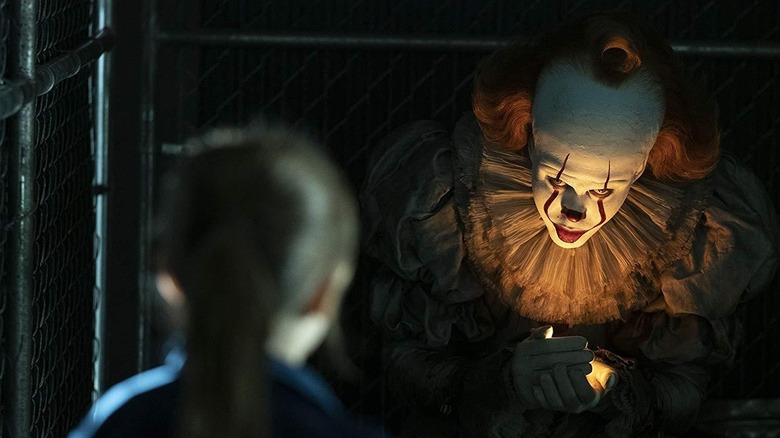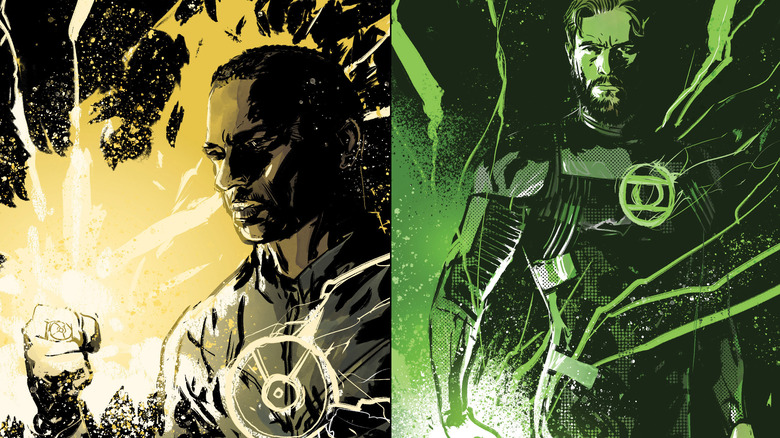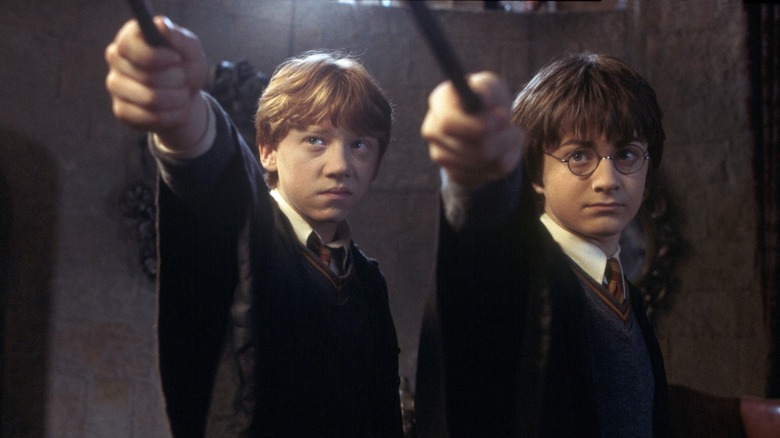Warner Bros. Discovery Must Protect HBO At All Costs – But Can They Actually Pull It Off?
HBO has always had a certain level of quality associated with it. From its early days of bringing big theatrical movies to the living room, to producing some of the most beloved shows of all time like "The Sopranos," it's a brand people associate with a particular standard of excellence. That HBO logo means something, and that association is not easy to accomplish. That being the case, it has been of paramount importance to Warner Bros. Discovery that they preserve the HBO brand at all costs. That has been tricky ever since Discovery purchased WarnerMedia in 2022, with David Zaslav taking over as CEO. But the Hollywood studio just made a move that suggests Zaslav and Co. know damn well the importance of HBO.
As reported by Variety, HBO and Max content CEO Casey Bloys has revealed that several shows that were initially going to be streaming originals made for Max are now becoming HBO originals. This includes DC's recently confirmed "Lanterns" series, the "It" prequel series "Welcome to Derry," and the upcoming "Harry Potter" TV show, which recently locked down its creative team.
"As we started producing those shows, we were using the same methods, the same kind of thinking, as how we would approach HBO shows. In a lot of cases, the same talent that has worked on HBO shows," Bloys explained. So, they've now arrived at a place where these shows will, in fact, become HBO shows. Bloys elaborated that once these shows started taking shape, the need to distinguish them as a Max show rather than an HBO show no longer made sense:
"What we ended up with is shows at this scope and scale that look great, and great narratives and talent we've worked with. The idea of the delineation kind of started to feel unnecessary. Like, why are we doing this? Let's just call them what they are: HBO shows."
HBO just proved its value to Warner Bros. Discovery
So what does this mean, exactly? For the average viewer, it probably doesn't mean much of anything right now. When these shows begin rolling out in 2025 and beyond, they will still stream on Max. The biggest difference is that they will also air on HBO, potentially opening them up to a bigger audience. That strategy has served shows like "House of the Dragon" and "The Last of Us" quite well, as they've gained huge audiences. Allowing these new shows to air on HBO 1) offers some prestige and 2) mitigates some risk that they will just get lost in the never-ending streaming void.
"For a show that feels big and cinematic, they already are going to make the assumption that it feels like an HBO show," Bloys said in the interview. "This is just leaning into that." Indeed, the shows in question do sort of feel like they would be right at home on HBO. So, how does Max factor into this? And what does a Max original look like in the future? Bloys also addressed that:
"I do think it is helpful to have a brand that doesn't put the expectations or the intention of an HBO show. If it's not designed to do that, it shouldn't have to. I like having that flexibility, that you can experiment with things creatively, format-wise."
That is a telling answer. Bloys (and everyone at WBD) knows that HBO is a pillar of the entertainment world. You can't just make every Max original an HBO show, as it would run the risk of diluting the brand. That's why I argued that removing the HBO name from HBO Max last year was good for the network. Sure, it created brand confusion with the streamer, but that might not be as important in the long run as preserving HBO's integrity.
Max might not survive the streaming wars
One thing that has become increasingly clear over the last year is that not all of the current players are going to survive the streaming wars. Netflix remains the king of the hill. Disney+ seems pretty safe. Beyond that? It's uncertain. Yes, Max has managed to achieve profitability, but that took years of losing billions to accomplish. Zaslav has been merciless in his cost-cutting efforts at Warner Bros. Discovery, from axing shows and movies from Max, to canceling already-filmed movies like "Batgirl" and "Coyote vs. Acme" altogether.
So does Zaslav see Max as the future? Or would he rather go a different route as things continue to evolve? Warner Bros. Discovery was interested in buying Paramount, but those negotiations didn't seem to go very far. If the company can't grow, they may need to consider their options. Bloys even addressed the current confusion in the marketplace, saying that this is all part of the ever-evolving process to try and figure it out.
"It's a confusing time in the business, consumers figuring out streaming and shows that were on linear and streaming and vice versa. We're trying to adapt and figure out what is the best way to approach this in a world where streaming is dominant. So, there is going to be experimentation, there are going to be mistakes. Because this is all still relatively new in the history of television."
What remains true is that HBO will be a cornerstone of whatever comes next. If Max goes away, HBO needs to be there. If WBD is sold to another big company, HBO needs to be there. If Warner Bros. Discovery is eventually sold for parts, HBO will be among the biggest of those parts. No matter what the scenario, HBO is too important to compromise. It must remain unharmed, no matter what happens in Hollywood's currently uncertain future. Zaslav at least understands that, it's just a matter of whether or not he can truly preserve HBO in practice as things unfold. We spoke about this on today's episode of the /Film Daily podcast, which you can listen to below:


